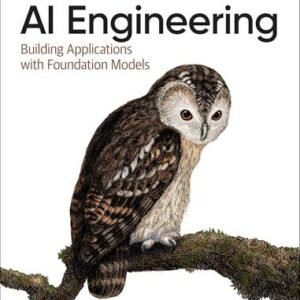In today’s fast-paced and ever-evolving job market, the recruitment landscape is undergoing a significant transformation, driven in large part by advancements in artificial intelligence (AI). As organizations strive to attract and retain top talent, the traditional hiring processes are being reimagined to meet the demands of a digital-first world. AI is emerging as a powerful ally for Human Resources (HR) professionals, enabling them to streamline operations, enhance candidate experiences, and make data-driven decisions that elevate the hiring process. From automating tedious administrative tasks to utilizing sophisticated algorithms for candidate matching, AI is not merely a tool; it is a catalyst for innovation within HR. In this article, we will explore the myriad ways AI is reshaping the recruitment landscape, the challenges it presents, and how organizations can leverage its potential to create a more efficient and equitable hiring process. Join us as we delve into the intersection of technology and talent acquisition, and discover how AI is paving the way for the future of recruitment.
Table of Contents
- The Evolution of Recruitment Technology Embracing AI in Human Resources
- Enhancing Candidate Experience Through Intelligent Automation
- Data-Driven Decision Making: Leveraging AI for Predictive Hiring
- Building a Diverse Workforce: AIs Impact on Inclusive Recruitment Strategies
- The Conclusion
The Evolution of Recruitment Technology Embracing AI in Human Resources
The landscape of recruitment has undergone a profound transformation with the integration of Artificial Intelligence. AI-powered tools are not just enhancing traditional recruitment practices; they are redefining them entirely. By utilizing data analytics and machine learning, organizations can streamline their hiring processes, making them more efficient and effective. For instance, AI can sift through thousands of resumes in seconds, identifying candidates who best match the predetermined criteria. This capability significantly reduces the time spent on initial screenings, allowing HR professionals to focus their efforts on engaging with top talent and fostering deeper connections with potential hires.
Moreover, AI is not only about efficiency; it also enhances the candidate experience. Personalized communication and tailored job recommendations are now possible through AI algorithms that analyze candidate preferences and past interactions. This results in a more engaging recruitment process where candidates feel valued and heard. Companies are also leveraging AI in the predictive analysis of hiring trends, allowing them to adapt their strategies proactively. The table below highlights some key AI applications in the recruitment sector:
| AI Application | Description |
|---|---|
| Resume Screening | Automated analysis of candidate resumes to identify best fits. |
| Chatbots | 24/7 interactive support for candidates, answering queries. |
| Predictive Analytics | Data-driven insights to forecast hiring needs and trends. |
| Skill Assessments | Real-time testing of candidates’ skills using AI tools. |
Enhancing Candidate Experience Through Intelligent Automation
In the fast-paced world of recruitment, intelligent automation is key to enhancing the candidate journey. By leveraging AI-driven tools, HR professionals can streamline various stages of the hiring process, creating a more efficient and satisfying experience for candidates. Chatbots, for example, can provide immediate responses to frequently asked questions, guiding applicants through the submission process and keeping them informed. This real-time engagement not only elevates a candidate’s perception of the employer but also frees up valuable time for HR teams to focus on more strategic tasks.
Furthermore, automating scheduling and feedback processes can significantly optimize communication between candidates and recruiters. Consider the following benefits:
- Reduced response time: Automated responses ensure candidates are acknowledged quickly.
- Consistent communication: Automation helps maintain a continuous flow of information throughout the recruiting process.
- Data-driven insights: Collecting feedback via automated surveys provides measurable insights, enabling HR to refine their approaches.
By embracing these innovative solutions, organizations can not only improve their operational efficiency but also foster a more positive and engaging environment for candidates, ultimately enhancing their overall recruitment success.
Data-Driven Decision Making: Leveraging AI for Predictive Hiring
In today’s competitive job market, organizations are increasingly turning to data analytics and artificial intelligence to refine their hiring processes. By harnessing advanced algorithms and machine learning techniques, recruiters can identify patterns and predict candidate success before they even step foot in the interview room. Companies can leverage AI for:
- Enhanced Candidate Screening: AI tools can swiftly analyze resumes and cover letters, ranking candidates based on proven criteria, thus significantly reducing time spent on recruitment.
- Sentiment Analysis: Natural language processing can assess candidate communication styles, helping to identify the best cultural fits.
- Predictive Analytics: By evaluating past hiring data, organizations can forecast the likelihood of candidate success and retention rates.
Moreover, the integration of AI into predictive hiring allows businesses to create a more inclusive and objective recruitment process. Data-driven insights enable HR teams to mitigate biases that might emerge from traditional hiring practices. For instance, utilizing AI-powered tools can help to ensure diversity by focusing on skills and experience rather than demographic factors. To illustrate this shift, consider the following table that summarizes the impact of AI on recruitment outcomes:
| Traditional Hiring Approach | AI-Driven Hiring Approach |
|---|---|
| Reliance on gut feeling | Data-backed decisions |
| Limited candidate pool | Diverse candidate sourcing |
| Potential for bias | Objective evaluations |
Building a Diverse Workforce: AIs Impact on Inclusive Recruitment Strategies
The integration of AI in recruitment processes has revolutionized the way organizations approach inclusivity and diversity. By leveraging powerful algorithms and machine learning models, HR teams can now eliminate biases that have traditionally hindered fair hiring practices. AI-driven tools analyze a wider pool of candidates, ensuring that selection processes are based on skills and qualifications rather than unconscious biases linked to gender, ethnicity, or age. This technology empowers recruiters to craft job descriptions that are more accessible and appealing to a broader audience, thus fostering a genuinely inclusive workplace culture.
Furthermore, AI can assist in monitoring and analyzing hiring data to uncover trends and disparities in recruitment outcomes. By providing insights into candidate pipelines and retention rates across different demographics, organizations can proactively address potential inequalities. Some of the remarkable benefits of employing AI in recruitment include:
- Enhanced Candidate Sourcing: AI tools can scan a variety of platforms to discover talent that may otherwise be overlooked.
- Objective Assessment: Automated evaluations can assess candidates’ skills without subjective influences.
- Improved Candidate Experience: Chatbots and AI-driven communication can provide quick feedback and support to applicants.
In exploring the potential of AI in inclusive recruitment strategies, it is crucial to set measurable goals. Below is a table showcasing suggested metrics and evaluation methods:
| Metric | Evaluation Method |
|---|---|
| Percentage of Diverse Candidates | Review applicant demographics against benchmarks. |
| Interview to Hire Ratio | Analyze the proportion of diverse candidates who reach each hiring stage. |
| Candidate Satisfaction Score | Survey candidates post-application for feedback on their experience. |
The Conclusion
the integration of AI into the recruitment process marks a profound shift in how organizations approach talent acquisition. By harnessing technology, HR professionals can streamline workflows, reduce biases, and enhance the overall candidate experience, allowing them to focus on what truly matters—building relationships and nurturing talent. As we move forward, it’s clear that those who embrace AI-driven innovations will not only gain a competitive edge but also foster a more inclusive and efficient hiring process.
However, it’s essential to remember that technology should augment, not replace, the human touch that lies at the heart of recruitment. Striking the right balance between AI capabilities and human intuition will be key to unlocking the full potential of this transformation. As we continue to explore the evolving landscape of HR, staying informed and adaptable will be paramount for both recruiters and job seekers alike. The future of recruitment is bright, and with AI leading the way, the possibilities are limitless.
Thank you for joining us on this journey. We encourage you to share your thoughts and experiences in the comments below, and don’t forget to subscribe for more insights into the world of HR innovation!





